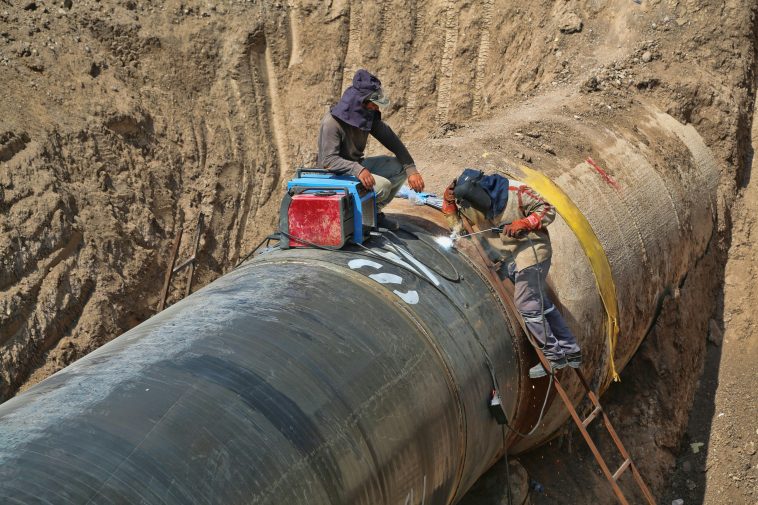South Africa’s Standard Bank, the largest African lender by assets, will provide funding for the controversial Uganda-Tanzania oil pipeline, according to a Bloomberg report on Thursday.
The 1,445km pipeline, intended to connect Uganda’s oil fields on the shores of Lake Albert to the Tanzanian port of Tanga, has encountered funding challenges. Environmentalists have been lobbying to halt the project, citing concerns that it will displace thousands of people and destroy animal habitats.
French oil giant TotalEnergies holds a majority stake in the project, with Uganda, Tanzania, and the China National Offshore Oil Corporation holding minority shares.
“We have completed our internal governance process and the environmental and social due diligence, which was a lengthy undertaking,” said Nonkululeko Nyembezi, the chair of Standard Bank, as quoted by Bloomberg.
The project has faced significant setbacks, as potential lenders and insurance firms have withdrawn due to environmental concerns highlighted by activists. These concerns have stalled the East African nation’s oil export aspirations for four years. Although Chinese lenders initially showed interest after Western banks backed away, they have now hesitated, questioning the project’s economic viability.
In 2022, the European Parliament passed a resolution opposing the project, further complicating TotalEnergies’ efforts to secure funding from European lenders.
Earlier this year, more than 20 insurers opted not to insure the project due to pressure from activists. Among those who declined involvement were SA Meacock, SiriusPoint, Enstart Group, Blenheim, and Riverstone International.
Nyembezi informed Bloomberg that the bank will make a decision in the upcoming months. “We have all the lenders. There is complete commitment from the sponsors of the oil projects to see it through,” Nyembezi stated.
Uganda, which is landlocked, discovered oil 17 years ago, but commercial production has been delayed due to the absence of an export pipeline through neighboring countries to the Indian Ocean. Both Uganda and Tanzania aim to complete the project by December 2025.
 We just launched our WhatsApp channel. Want to get the latest news from the Tech in Africa?
We just launched our WhatsApp channel. Want to get the latest news from the Tech in Africa?


